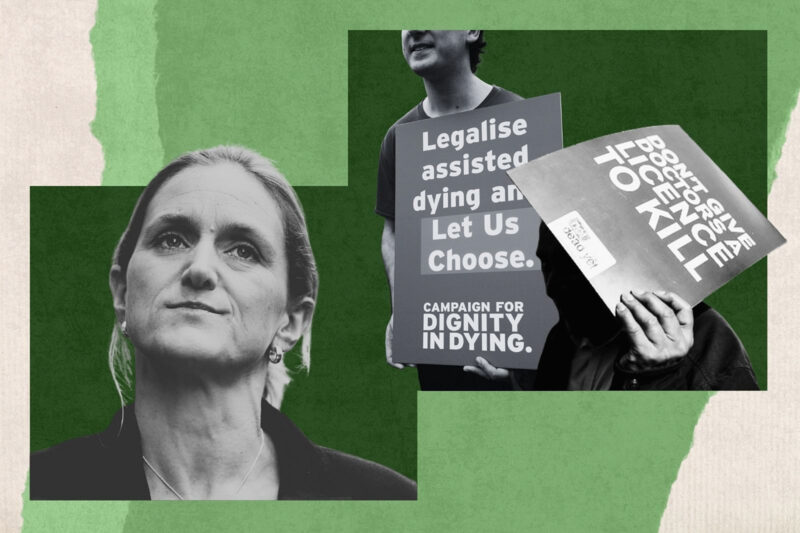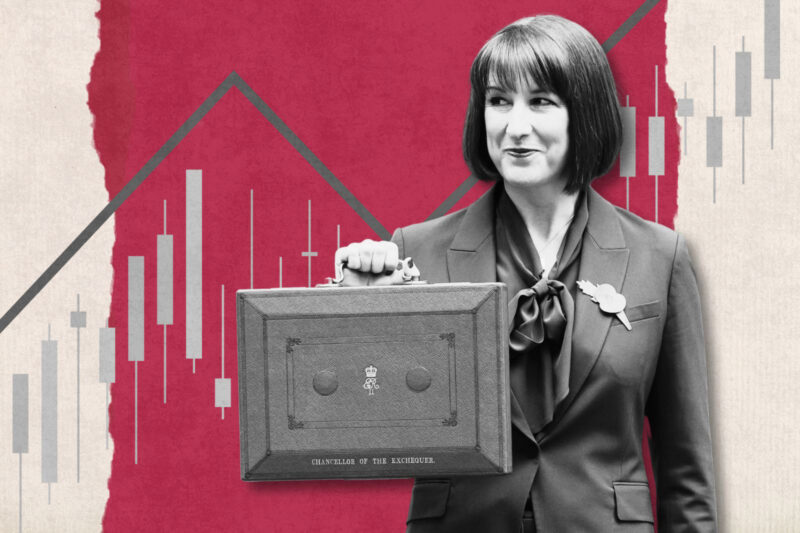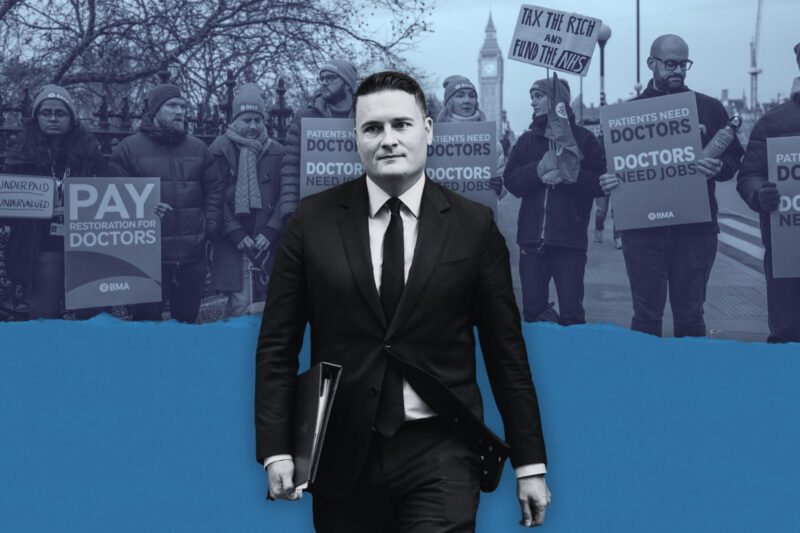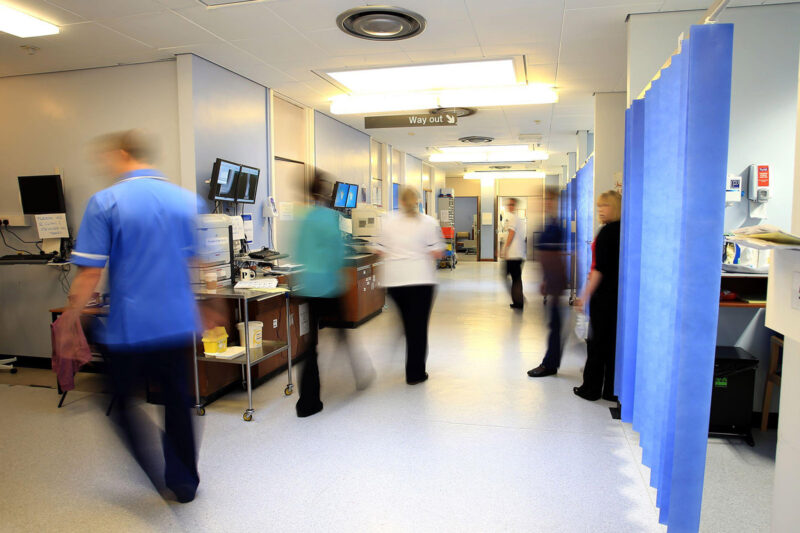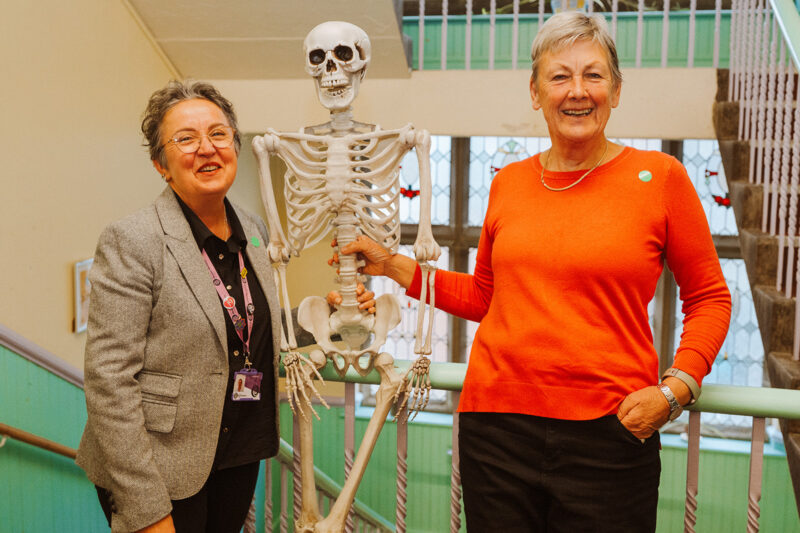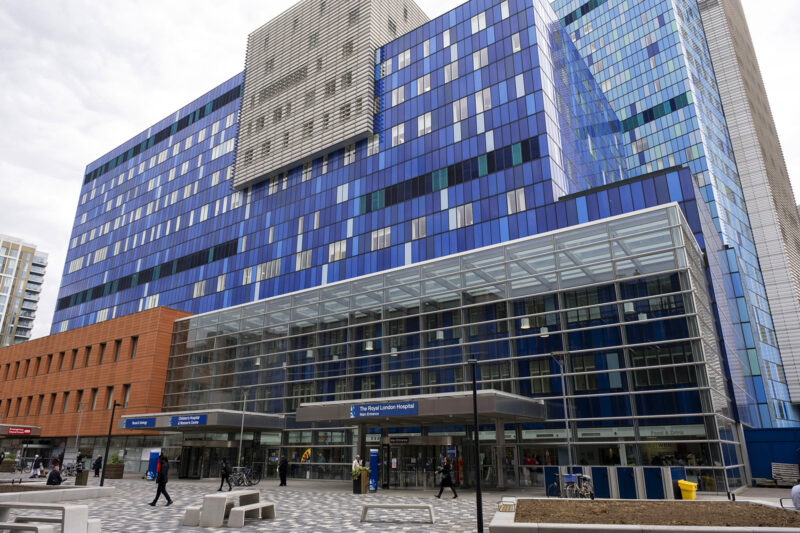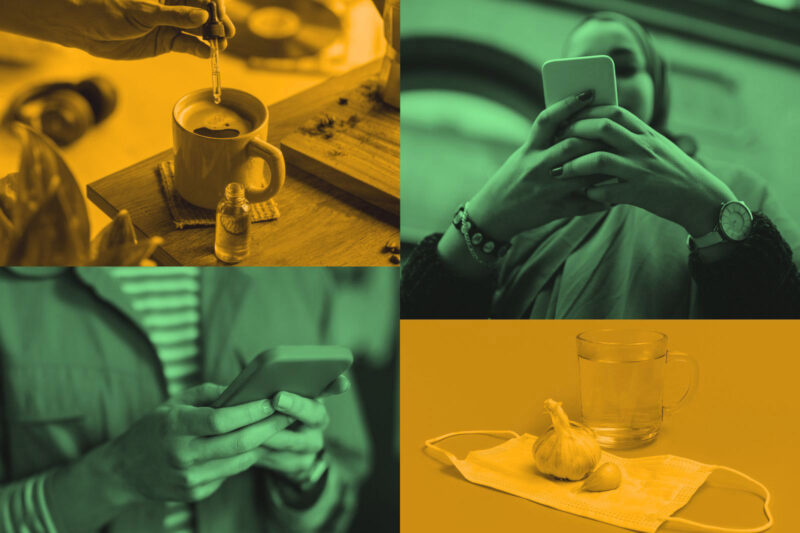In a Birmingham healthcare desert, locals are still unsure which way to vote
Residents of the multicultural Lozells district, one of the poorest areas in Britain, complain of inaccessible GPs and a lack of culturally appropriate support
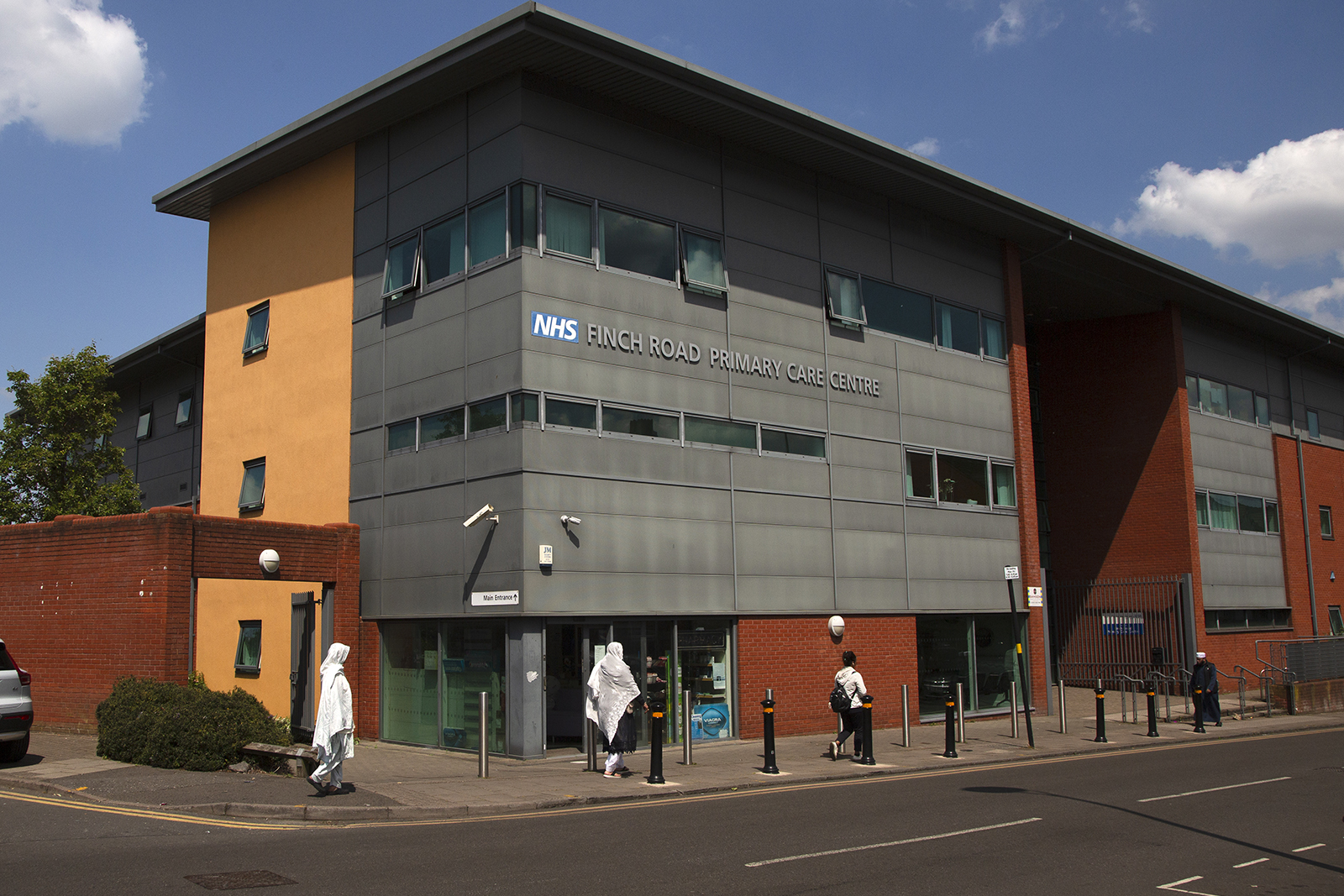
“If the government is funding the NHS, it does not trickle down to our level,” says Afsana Khan, a welfare and rights adviser at Aspire & Succeed, a small community centre in the heart of the Lozells neighbourhood in Birmingham. “That money must be going somewhere else, because we don’t see it here.”
The organisation sees more than 300 clients per week and about half of them, Khan says, come seeking advice regarding NHS services. Often their requests are not complicated: help scheduling appointments, requesting health records, or arranging for an interpreter. All are issues that should be able to be resolved directly with healthcare providers. But, according to staff and clients at Aspire & Succeed, primary health services, such as GP consultations, have become all but inaccessible to many Lozells residents since the Covid-19 pandemic.
“It really feels that the NHS is failing here,” Khan says. “They do the bare minimum and we are left to fill in the gaps.”
“Before Covid, the GP was very nice. Now, not so much,” says Meysun, a 40-year-old single parent who is a frequent user of Aspire & Succeed’s services, who wishes to only be identified by her first name. “Getting an appointment or a prescription is near impossible and the process can be very unpleasant. I’ve now stopped seeing the doctor at all and stick to using home remedies. I pray to God that I don’t have to interact with the health service again any time soon.”
Lozells, a neighbourhood in inner-city west Birmingham, is one of the most ethnically diverse areas in Britain. More than 79% of residents are Muslims, most from South Asian backgrounds. It is also among the most deprived areas in the country, with 46.8% of children living in poverty.
The state of the NHS is the number-one issue for Muslim voters, according to a recent poll carried out by Hyphen. But in Lozells — a place where the NHS trust, Sandwell and West Birmingham Hospitals, was recently ranked by the Telegraph in the bottom 10 nationally, based on NHS data, and GP appointments have become largely unobtainable — voters are struggling to find representation among mainstream political parties.
A week before the general election, the only posters in sight on Lozells Road, the neighbourhood high street, belong to the independent candidate Ayoub Khan, who is running on a pro-Palestine platform.
“I don’t know who I will be voting for, I have no idea. Definitely not the current government. At this point any change will be a good change,” says shop owner Khurram Jamil, 40. NHS services in the area are “awful”, he adds. After his last experience of trying to access healthcare due to an allergic reaction, Jamil decided to register with a GP outside of Lozells. “Now I can get an appointment without problems. It’s normal,” he says.
Arwa, whose daughter suffers from childhood arthritis and who wishes to be quoted under a pseudonym, says: “I always voted Labour, ever since I was 18. Now, I don’t think I can vote for them. What we need are public services, but I don’t think that’s where they want to spend the money.”
Responsibility for GP services in Lozells lies with the NHS Birmingham and Solihull integrated care board. In response to questions for this article, a spokesperson for the board stated via email: “Demand for GP practice appointments in Birmingham and Solihull remains exceptionally high and we are supporting general practice colleagues to meet this rising demand, including through the provision of additional appointments via a range of methods, including face-to-face, telephone and virtual appointments, which will be offered based on the needs of the patient and their individual circumstances.”
The email went on to add that “patients can raise specific concerns about their experience with our Patient Experience team whose details are available online”.
In 2021 Lozells was the epicentre of Birmingham’s Covid pandemic, with the highest number of cases in the city.
“It was a very hard time for our community,” says Shale Ahmed, Aspire & Succeed’s director and a lifelong Lozells resident. “Every morning we would wake up to messages on WhatsApp that an uncle or auntie we knew died. Lozells was one of the hardest-hit neighbourhoods.”
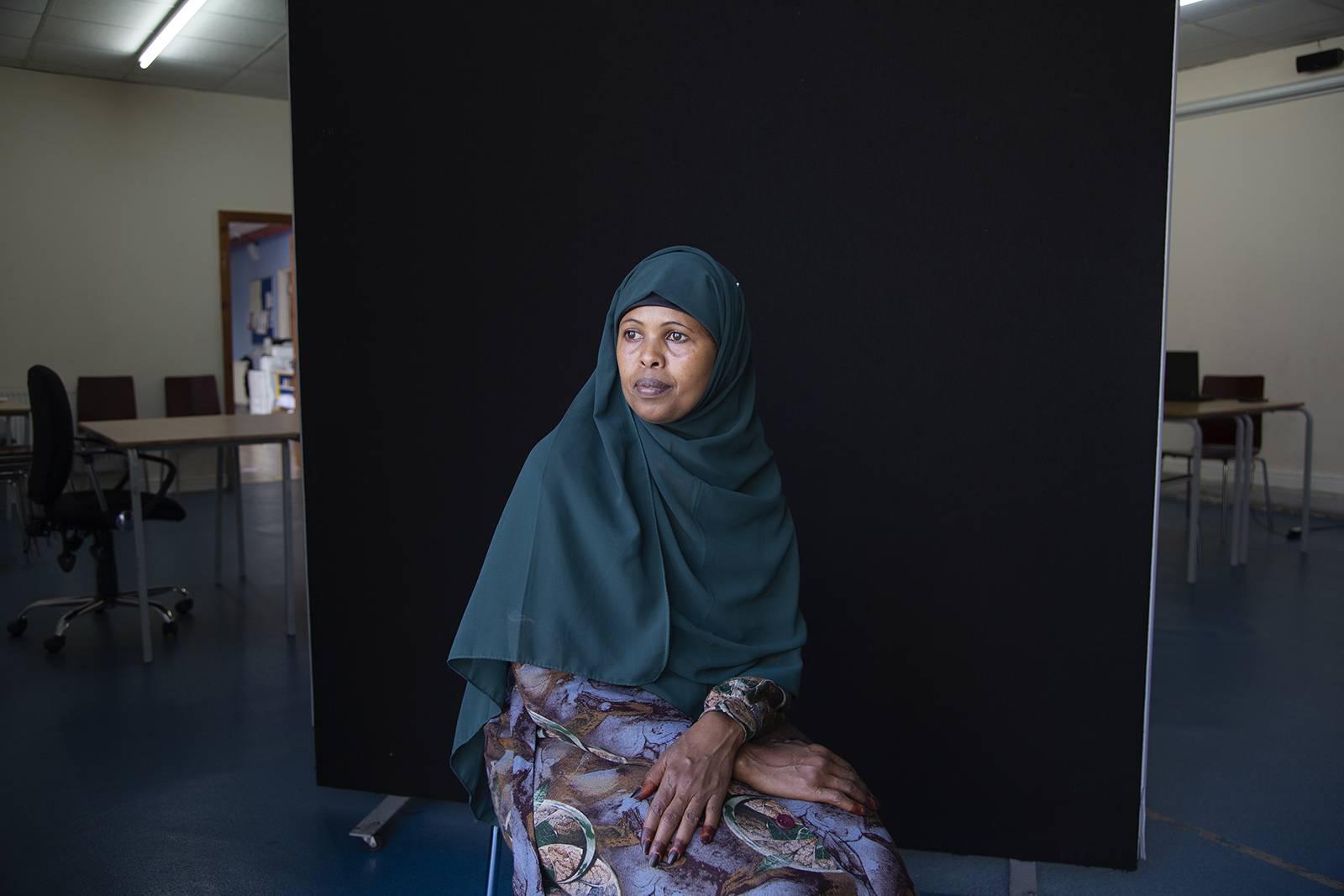
For many residents, the pandemic highlighted health inequality in Birmingham, Ahmed says. “We started to ask, why do people living just a few miles down the road from Lozells have higher life expectancy than us? Why do we have to wait for weeks to see a GP while people who register with a GP a few streets down don’t?”
Now, three years after all pandemic restrictions were lifted, those questions remain. A recent report on health inequality compiled by Aston University and Birmingham Community Healthcare NHS Trust, found that NHS patients in Lozells and other deprived areas of Birmingham were likely to report “great difficulties” in accessing GP services, including barriers to arranging appointments and long waiting times.
“It is not groundbreaking to say that if you live in a deprived area you will have a lower life expectancy,” says Céline Benoit, a sociologist at Aston University and author of the report. “But what we found is that on top of this, if you live in an area like Lozells, just getting in contact with a GP is a battle in itself.”
Such problems are “invisible” and not reflected in official NHS statistics, she adds.
“The data hides the uphill battles. It might show how many people who got in touch with the practice got an appointment, but it does not record all of those who never got through to reception in the first place.”
Khadija Ali, a welfare and rights adviser at Aspire & Succeed, agrees: “If you do manage to get through, the tone of the receptionist can be very confrontational and you feel like you are being interrogated. You really have to prove that you deserve to be seen. Getting a routine appointment is not possible any more. They offer appointments for urgent problems only. Otherwise, they tell you to call 111.”
The shortage of GP appointments is also a gendered problem, according to Benoit. “It is the women who have to queue from 8am for hours to get appointments or travel for miles to go to a walk-in centre with their children. They are the ones with care responsibilities for children or older relatives.”
The last time her daughter experienced a severe inflammation due to her arthritis, Arwa spent an hour waiting to speak to reception at her local GP, then was sent to a walk-in centre far from her home. There, she had to wait for hours before her daughter was seen.
“By the time I got home, it was already night,” she says. “And I had to arrange for someone to care for my children when I was gone. Every time my daughter needs medical attention I know it will take up my whole day and I am sick of asking my friends for favours to take care of my kids. It makes me feel like a burden.”
The problem is so widespread that Arwa and other women in her area have started to work together, picking up each other’s children from school and sharing childcare, so they can dedicate the necessary hours to seeking doctors’ consultations.
At Aspire & Succeed, Khan says: “We call in to schedule appointments for people and arrange referrals. Often, we act as translators during phone consultations and arrange for interpreters to attend in person appointments. If we don’t take that responsibility, our clients are often left without interpretation because the NHS interpreter never arrives or does not speak the right dialect.”
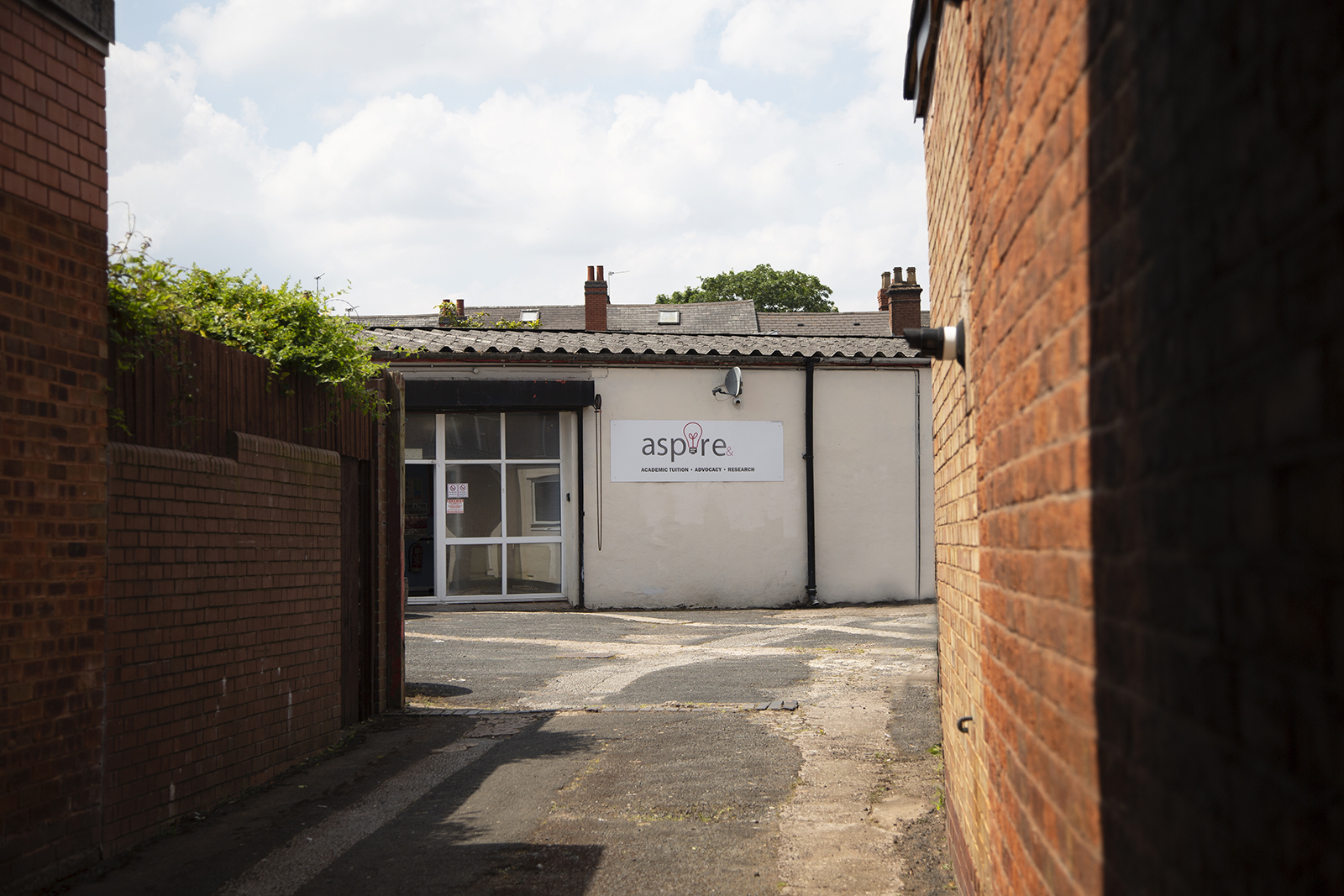
According to a Birmingham Council public health report, more than 17% of adults in Lozells struggle to communicate in English. While integrated care boards are responsible for providing translation and interpretation services for patients accessing primary care, Khan says that services in the area make little effort to meet the language needs of patients and is finding that significant part of her work involves stepping in as an interpreter for Bengali, Urdu, and Hindi-speaking clients when they are let down by the NHS.
“Most often they ask the patient if someone in their family can act as an interpreter, and they don’t really care if that person is a child, if they are in school, or if they even have the vocabulary needed to talk about medical issues,” she says. “Recently, one of our clients had his application for personal independence payment rejected because his 12-year-old daughter, who was acting as an interpreter during his health assessment, did not have the vocabulary to describe his back injury accurately.”
NHS Birmingham and Solihull integrated care board stated, via email, that “all practices have access to interpreting services should patients need it in order to ensure they can access the services they need in a fair and equitable way”.
Sollu, a 36-year-old mother of four and a Lozells resident, who wishes to only be identified by her first name, fell ill with stomach ulcers caused by a bacterial infection in November. Despite being in severe pain, she was denied a GP appointment and told there were no available times. Eventually, she saw a private GP and spent more than £200 on treatment.
“It was a considerable sum of money for me,” she says. “I had other bills to pay and had to go without to afford everything, but I felt I had no choice. I was in too much pain to take care of my children.”
Sollu is not the only one to abandon hope in her local GP, according to staff at Aspire & Succeed. But not everyone is able to afford private care.
“Many of our clients have given up on the NHS completely,” says Ali. “They feel that there is no point, that they will not help anyway. They’ve stopped seeking healthcare and I am worried. We’ve already started seeing clients whose health issues have worsened or become chronic. We are seeing neglect.”
 Newsletter
Newsletter


